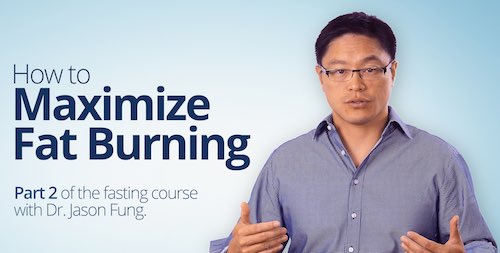Fasting is easy because it simply means not voluntarily eating. While most diets are about all the things you have to eat and not eat, fasting is simple. You just stop eating anything for as long as you choose and drink water, tea, coffee, or broth.
How long you fast is up to you. Some people fast for just 12 hours, others for as long as three months or even more. You can fast once a day or once a year.

People fast for health, spiritual, or other reasons. I often make short fasts to manage my weight because I have Type 2 diabetes and know that when I have a normal weight, my body’s insulin sensitivity will be better.
My weight was up several pounds after I got a cold about a month ago and ate lots of yummy fats as comfort food. I was into my sixth and last day of intermittent fasting by eating nothing after the lunch hour. Then, I happened to read that a diabetes expert had just published the first book about fasting that I think is worth reading.
The book
Jason Fung, M.D., wrote the book, “The Complete Guide to Fasting: Heal Your Body Through Intermittent, Alternate-Day, and Extended Fasting,” after searching everywhere and finding “no good books on intermittent fasting.” The book is available now in either a paperback or Kindle edition.
He is a nephrologist, weight loss, and diabetes health expert who probably has more experience with practicing and teaching fasting than anyone else in the world. Dr. Fung “has used a variety of fasting protocols with more than 1,000 patients, with fantastic success.”
His program
His Intensive Dietary Management Program, based in Toronto, Canada, focuses on treating the metabolic syndrome, which includes diabetes, obesity, high blood pressure, high cholesterol, fatty liver, Alzheimer’s disease, and cancer. I have been reading his Intensive Dietary Management Blog since August 2013 when he started it.
Dr. Fung wrote the book with health podcaster Jimmy Moore, who has extensive experience with fasting and low-carb dieting after losing 180 of his 410 pounds. Nine years ago, Jimmy interviewed me for his article and podcast, “Most Famous Diabetes Writer David Mendosa Chooses Low-Carb Living.”
Synergies with low-carb
Fasting and low-carb diets have synergies. Both have the goal of lowering insulin, which Dr. Fung believes is the key driver of obesity.
“I prefer for my clients to stick to a good, nutrient-dense low-carb diet and get fat-adapted for a while before experimenting with fasting,” writes nutritionist Amy Burger in a sidebar within the book. “I think it’s easier and more pleasant to fast when your body isn’t still screaming out for carbohydrates.”
Especially for diabetes
Fasting is especially important for anyone who has diabetes, and many of us already follow a low-carb diet. For people with diabetes, the heart of the book is Chapter 6, “Fasting for Type 2 Diabetes.” But the other chapters in this 304-page book provide many valuable insights, including fasting tips and healing liquid recipes.
Almost anyone can benefit from fasting. But the book advises that pregnant and breastfeeding women and people with excessive low body fat shouldn’t fast. “Anyone who feels poorly in any way must stop fasting immediately and contact a healthcare provider.”
Challenges
Fasting does come with some challenges. I emailed Dr. Fung to ask him what problems people might have with fasting, in addition to sharing an experience that I once had, when I had a headache for a few minutes while I hiked during a fast.
“That’s about it,” he replied by email. “Headaches are common the first few times people fast. They mostly go away by themselves. Sometimes it helps to take a little extra salt. When someone with Type 2 diabetes fasts, all that happens is that his/her body is forced to burn some of that sugar for energy, so you don’t need to take so much medication to bring the blood sugar down.”
Benefits
Fasting has many more benefits than these few challenges. Briefly, here are some of the benefits that the book covers:
- Improves mental clarity and concentration
- Induces weight and body fat loss
- Lowers blood glucose levels
- Improves insulin sensitivity
- Increases energy
- Improves fat-burning
- Lowers blood cholesterol
- Prevents Alzheimer’s disease
- Extends life
- Reverses aging process
- Decreases inflammation
Enough benefits?
This is plenty!
This well-written book gets its authority both from that of Dr. Fung’s experience and from the sources in the professional literature that he cites in endnotes. Get this book now. Reading it can inspire you to put this knowledge into practice and help change your life.
This article is based on an earlier version of my article published by HealthCentral.
Never Miss An Update
Subscribe to my free newsletter “Diabetes Update”
I send out my newsletter on first of every month. It covers new articles and columns that I have written and important developments in diabetes generally that you may have missed.

